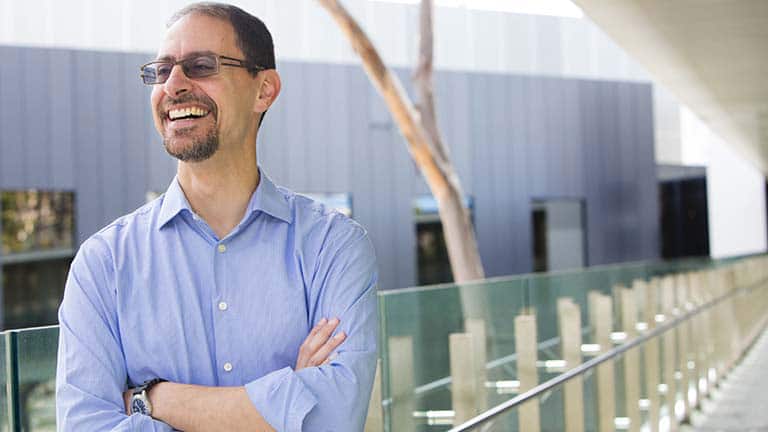
Professor Attia has received $600,000 in funding for his research on a vaccine that protects against heart attacks and strokes.

Almost $15 million has been awarded to 10 senior scientists and 10 clinician scientists across the state to continue their work into Australia’s number one killer, heart disease.
The University of Newcastle’s Professor John Attia, staff specialist at John Hunter Hospital in the division of Medicine, was among the recipients to share in the Cardiovascular Clinician Scientist Grants announced by the NSW Government, receiving $600,000 over the next three years.
Professor Attia’s work concentrates on finding a vaccine that protects against heart attacks and strokes.
The latest statistics from the National Heart Foundation state that heart disease takes 51 Australian lives every day. One-fifth of Australians aged 45 to 74 are at high risk of having a heart attack or stroke in the next five years.
Heart attacks and strokes are caused by the build-up of cholesterol – called a plaque – in the arteries of the heart or brain, which leads to the death of heart or brain tissue. Previous studies have shown that vaccination against the Pneumococcal bacterium reduces the size and number of plaques.
Professor Attia said it appeared the cell wall of the bacterium contains a fat that looks like the bad cholesterol, which builds up in the plaque.
“Vaccination triggers the production of antibodies towards this cell wall fat and these antibodies cross-react with the bad cholesterol, attacking and clearing the plaque,” he said. “It essentially tricks the body into attacking the cholesterol build-up.”
“The initial observational studies are promising, showing that people who receive the pneumococcal vaccine have a lower risk of heart attack and stroke than those who do not. But because these studies were not randomised, it is possible that these results are confounded.”
The full clinical trial is under way and 4725 people have been recruited and randomised to the active or placebo vaccine.
“We are one and a half years into the six-year follow-up, counting heart attacks and strokes,” Professor Attia said.
While waiting for the clinical results to become available, Professor Attia will use his portion of the funding to investigate how levels of antibodies are associated with early plaque build-up, as detected by ultrasound.
“This will shed light on the possible mechanism of how these antibodies may protect against heart attacks and strokes, and potentially allow us to tweak the vaccine to be even more effective,” he said.
If the study is successful, availability of the vaccine could be increased and the target age of people at risk could be reduced from 65 to 55, which would allow more people to be eligible for the vaccine.
* HMRI is a partnership between the University of Newcastle, Hunter New England Health and the community.
HMRI would like to acknowledge the Traditional Custodians of the land on which we work and live, the Awabakal and Worimi peoples, and pay our respects to Elders past and present. We recognise and respect their cultural heritage and beliefs and their continued connection to their land.
Hunter Medical Research Institute
We’re taking healthy further.
Locked Bag 1000
New Lambton
NSW, Australia, 2305


This site is protected by reCAPTCHA and the Google Privacy Policy and Terms of Service apply.
Copyright © 2024 Hunter Medical Research Institute | ABN: 27 081 436 919
Site by Marlin Communications

Notifications